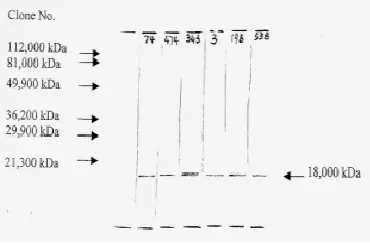
Western blot analysis of recombinant human bFGF using anti-human bFGF monoclonal antibodies. From the left, second lane is GTX18634.
FGF2 antibody [F-474]
GTX18634
ApplicationsWestern Blot, ELISA
Product group Antibodies
TargetFGF2
Overview
- SupplierGeneTex
- Product NameFGF2 antibody [F-474]
- Delivery Days Customer9
- Application Supplier NoteELISA: Use at an assay dependent dilution. Optimal dilutions/concentrations should be determined by the end user.
- ApplicationsWestern Blot, ELISA
- CertificationResearch Use Only
- ClonalityMonoclonal
- Clone IDF-474
- Concentration1 mg/ml
- ConjugateUnconjugated
- Gene ID2247
- Target nameFGF2
- Target descriptionfibroblast growth factor 2
- Target synonymsBFGF, FGF-2, FGFB, HBGF-2, fibroblast growth factor 2, basic fibroblast growth factor bFGF, fibroblast growth factor 2 (basic), heparin-binding growth factor 2, prostatropin
- HostMouse
- IsotypeIgG2a
- Protein IDP09038
- Protein NameFibroblast growth factor 2
- Scientific DescriptionThe protein encoded by this gene is a member of the fibroblast growth factor (FGF) family. FGF family members bind heparin and possess broad mitogenic and angiogenic activities. This protein has been implicated in diverse biological processes, such as limb and nervous system development, wound healing, and tumor growth. The mRNA for this gene contains multiple polyadenylation sites, and is alternatively translated from non-AUG (CUG) and AUG initiation codons, resulting in five different isoforms with distinct properties. The CUG-initiated isoforms are localized in the nucleus and are responsible for the intracrine effect, whereas, the AUG-initiated form is mostly cytosolic and is responsible for the paracrine and autocrine effects of this FGF. [provided by RefSeq, Jul 2008]
- Storage Instruction-20°C or -80°C,2°C to 8°C
- UNSPSC12352203


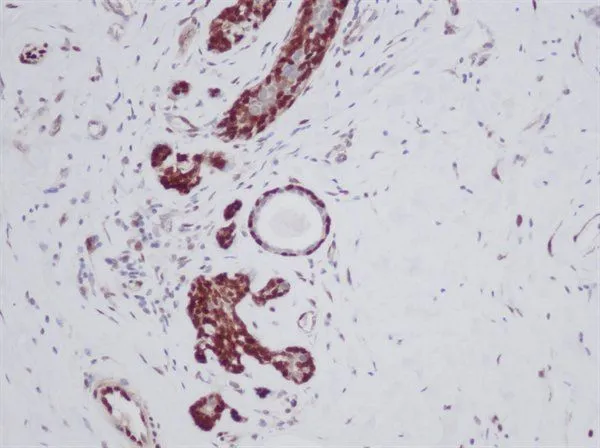
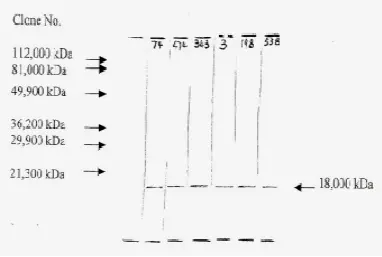
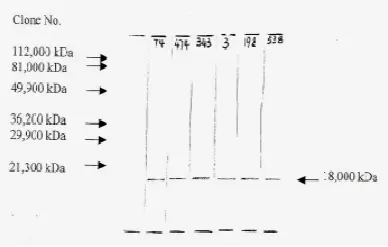
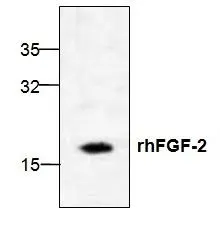
![IHC-P analysis of human recturn adenocarcinoma tissue using GTX83243 FGF2 antibody [2H5G2C11].](https://www.genetex.com/upload/website/prouct_img/normal/GTX83243/GTX83243_20170912_IHC-P_w_23061322_867.webp)
![WB analysis of various samples using GTX84501 FGF2 antibody [2H11]. Loading : 10 ug per lane Dilution : 1:200](https://www.genetex.com/upload/website/prouct_img/normal/GTX84501/GTX84501_3537_WB_w_23061420_850.webp)